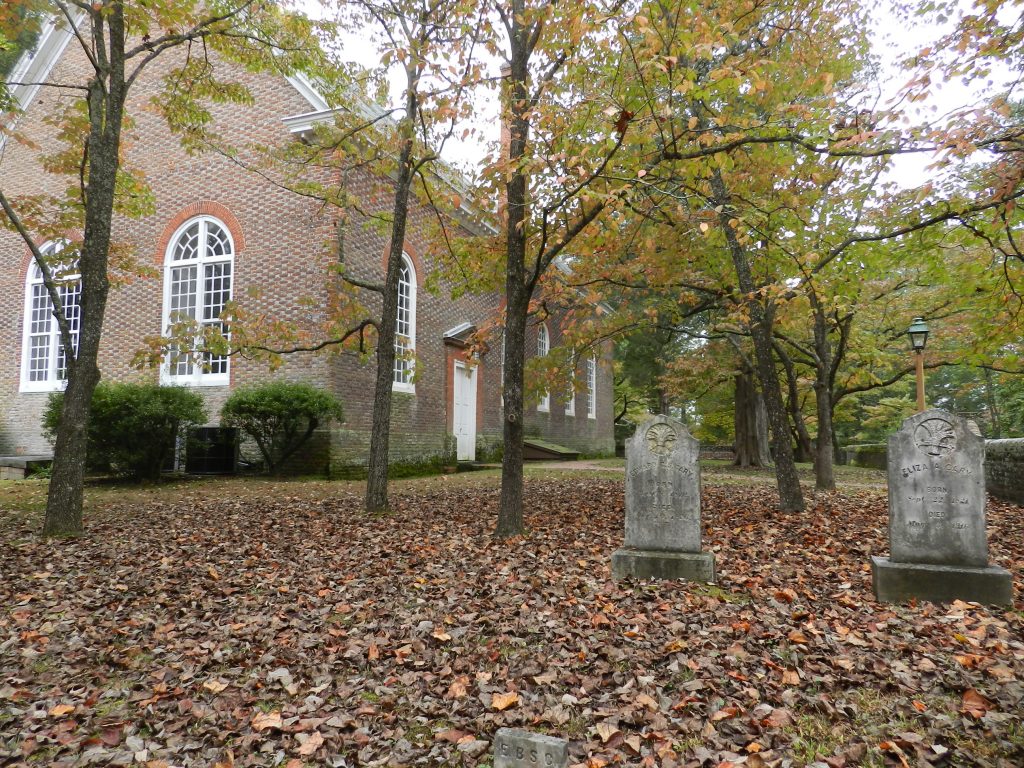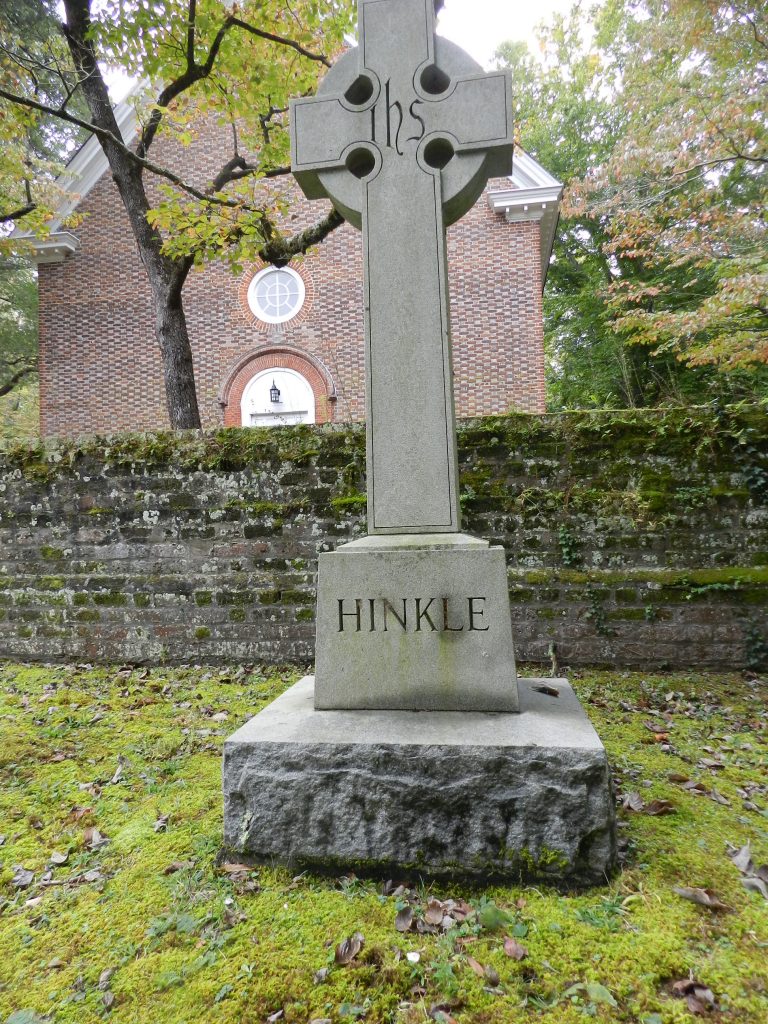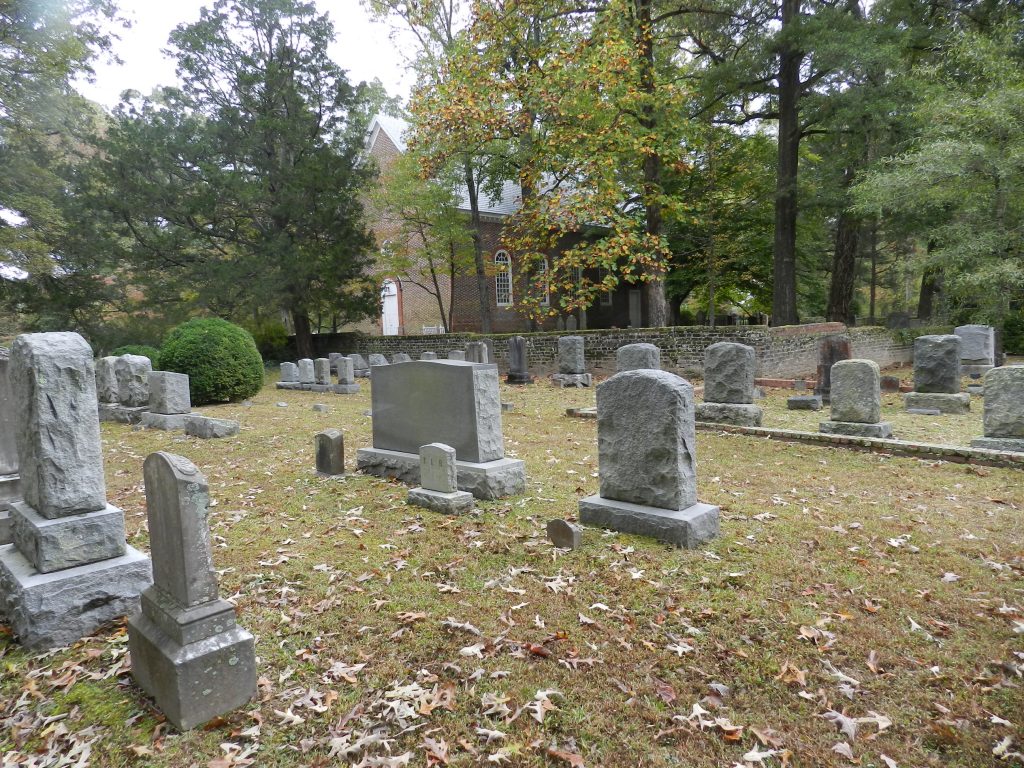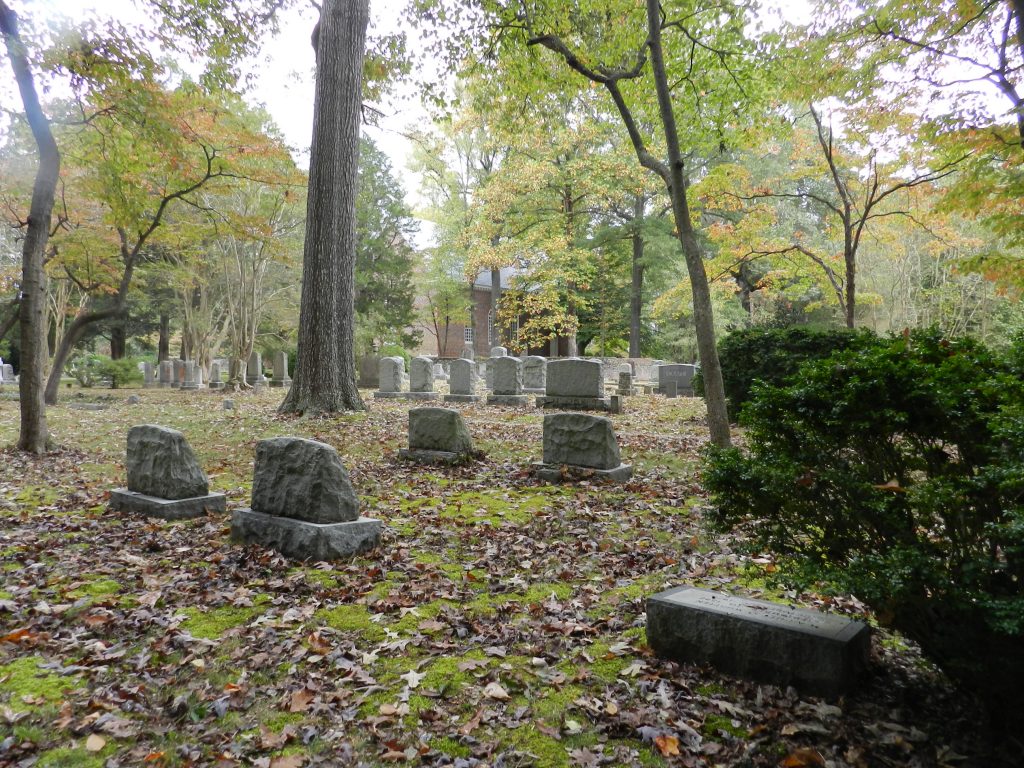
All photos taken in the cemetery of Ware Episcopal Church in Gloucester County, Virginia
The dead woman drank an impressively steady stream of margaritas. A veritable salt-rimmed, ice-adorned River Lethe of tequila, triple sec and lime juice. She sat two barstools to my left. I did not yet know she was dead. She looked alive enough that I struck up a superficial conversation, something I am not inclined to do with the dearly departed. Come to learn she had once been a trauma nurse in an emergency room somewhere in California. She was now working part-time as a motel maid in a major-league ski town populated primarily by members of the upper crust. This seemed like a big vocational drop-off, a subject with which I am well familiar. I guessed she was in her mid-50s. Pretty. Well coiffed and attired. Looked to have a full rack of dentition. No ghost-like aura. No visible signs of decomposition. No foul stench.
Though it hovered on inappropriately personal, I could not resist asking about her apparent downward career trajectory. She admitted, yes, it might seem a bit odd to go from being a high-level health-care professional to changing bed sheets soiled by affluent strangers. I suspected some tale of woe — like maybe getting busted stealing pills from the hospital pharmacy.
Instead, she told me that, eight years prior, she had died.
I assumed, as any of us would, that she had experienced some sort of medical emergency — a heart attack perhaps, or a near drowning, or an overdose — and had been miraculously resuscitated, like so many stories we all have seen on TV.
No, she said, she had actually passed away. She was, at the moment we were sitting there chatting amicably in well-polished watering hole in a beautiful Colorado mountain town on an idyllic summer’s eve, dead as a fucking doornail.
As this unusual autobiographical tidbit was sinking in, my memory reflexively revisited what until that moment had been the strangest introductory bar encounter I had ever experienced. I had mistakenly wandered into a biker-gang clubhouse in Prescott on a very busy Friday night thinking it was nothing more than yet another in a long line of skanky dives that have borne my boot prints over the years.
The stunningly unhygienic giant next to me did not look more frightening than any of the other patrons — most of whom sported facial scars — so I said howdy and we talked as much as we could above a raucous din dominated by the sound of pool cues being shattered over people’s noggins. The stunningly unhygienic giant, who was actually affable enough, asked what had inclined me to wander into the establishment in which we were sitting, the implication being that I was essentially in the Wrong Place, my MC bonafides being obviously sorely lacking. After explaining my innocent disorientation and begging for my life, I, in turn, asked after his story. He moved his face close enough to mine that I could accurately count all three of his remaining teeth and responded that he was the high priest of the biggest satanic cult in the entire state of Arizona. It was only then that I noticed the bright-red goat pentagram tattooed on his, well, forehead.
I looked down at my watch and mumbled words to the effect of, “Oh, my! Look at the time! I must be on my merry way!”
The margarita-swilling dead woman trumped the three-toothed devil worshipper.

Naturally, I assumed the dead woman was bullshitting me and/or so drunk that her immediate reality was blurred and/or batshit crazy and/or trying to dissuade further attempts at discourse. All she did was inflame my curiosity, which, upon further reflection, may have been her intent after all, as I assume it could get a bit lonely being dead in a lively ski town.
She told me she was, of all fortuitous coincidences, in the emergency room of the hospital in which she worked when it happened: a fatal brain aneurysm. One second, she was standing there scratching her ass, the next second, she hit the deck like a monster load of elephant dung splatting down on the dusty African veldt. Almost immediately, she was under the care of a medical team consisting of her co-workers. They performed valiantly, the dead woman told me, but their efforts were in vain. She felt herself slipping away. She had always thought talk of a bright white light was poppycock concocted by the swirling brain chemistry of people with one foot in the grave who were yanked back from the mortality precipice. Her opinion changed as she lay dying.
“I was greeted by my ancestors,” she said, over yet another margarita. “They were standing there, intensely illuminated, waiting to help me cross over. It was lovely.”
“How did you know they were your ancestors?” I asked, with just the slightest hint of cerveza-enhanced skepticism creeping into my intonation.
“Among my earliest childhood memories was a great-great aunt, who must have been in her 90s when I was a toddler,” the dead woman responded. “She was there. I recognized her. She told me the other people were my ancestors.”
The dead woman, though, was not yet all the way gone. Back in the emergency room, the attending physician, who she knew well, whispered in her ear, “I am going to administer one last drug. It won’t work, but I still have to try. I hope your journey to the other side goes smoothly.”
(Along about here, the dead woman’s narrative thread started to lose whatever minimal linear coherency it had maintained up until this point, a situation likely exacerbated by the fact that I, like her, had not exactly been practicing teetotalism during the course of our convoluted conversation.)
“As he guessed, the drug was not effective, but it was effective enough that it pulled me away from my ancestors,” the dead woman said. “I was in no man’s land — neither conscious nor unconscious, neither alive nor dead, for three months. Back in the hospital, they called it a coma.”
When she finally emerged from her coma, she was, she said, dead. And she has been dead ever since.
“Was it like an out-of-body experience, where your spirit rose and looked back down on yourself still lying on the bed?”
“No,” the dead woman said. “There was no disconnection. My eyes opened and I sat up, dead.”
“When that happened, weren’t you in the same hospital in which you suffered your brain aneurism and did you not then walk among the very same people who had worked to save your life in the emergency room a quarter-year prior? Did they not welcome you back to the land of the living with the same degree of enthusiasm with which your ancestors welcomed you to the land of the dead?”
“Yes,” she said. “I’ll admit that part was strange. It was very disorienting to suddenly be in the presence of people who did not understand that I had died.”

The dead woman had previously made reference to her children. So I asked about that. How could she possibly still have interactions with her offspring if she and they dwelled on different sides of the great divide?
“I am completely different than I was when I was alive,” she said. “I do not like the same things. I never used to like tequila, for instance, and now I can’t seem to get enough of it. Because I am so different, my children are very different. They are not the same people they were before I died.”
“You still visit them, right?”
“Yes, several times a year.”
“Do you appear to them as an apparition?”
“Maybe. I don’t know how I appear to them. We interact, but in a completely different way than before.”
“Do they consider you dead?”
“They know I am no longer alive.”
“By what means do you travel to visit them?” I asked. “Teleportation?”
“My driver’s license expired shortly after I did,” she said with a smile. “So I fly.”
Shit, I thought, every kid’s worst nightmare: Being haunted by your mom after she dies. Every kid’s second-worst nightmare: Being visited by a mom who thinks she’s dead. I mean, my mom certainly had her faults, but, in the 30-plus years she’s been gone, she has never once dropped in for a posthumous visit, which I appreciate more than words can convey.
“Speaking of which,” I asked, “how did you come to be in this town?”
“I was called here by forces I could not define or resist. I arrived on a Greyhound bus in the middle of the night with no money, no place to sleep, no job, no life. I did not know a soul here.”
The dead woman went on to say, by way of what I assumed to be an attempt at clarification, that all of our cultural perceptions about death and the so-called hereafter are based upon notions of either/or: you are either alive or you are dead. Sure, she admitted, there are a few rare grey areas, like, I would guess, when you’re lying in bed for three months in a vegetative state with all manner of tubes running up your nose, down your throat and up your ass and the ever-present EKG and EEG machines making those endless bleep-bleep noises — any sane person’s definition of hell on earth.
Our perceptions toward the afterlife, according to my newfound a-corporeal drinking chum, are based upon the belief that there is a partition, the other side of which is found a world that essentially defies our understanding of rational thought and the foundational laws of physics, a confusing place occupied by spirits, angels and characters from Tim Burton’s “Nightmare Before Christmas.”
“The notion that the afterlife is totally different from the living world is complete fiction, the work of self-proclaimed visionaries looking to explain the unexplainable to people desperate enough for something to believe in that they are willing to believe in utter nonsense,” the dead woman said. “There isn’t a wall between life and death. If anything, it is more like a permeable membrane. Like cosmic Gore-Tex. Or cheesecloth.”
But the mountain-town in which this conversation was transpiring was obviously very different from the place she was during that brief time when her ancestors stood arrayed before her as the emergency room people were trying to pull her back. Where was that place and how does it relate to a watering that, I surmised, served as a sort of post-death interstate-highway rest area, a purgatory with bowls of Chex Mix thoughtfully placed before every patron.
“I don’t know,” she answered. “I’m still trying to figure that out. I go looking for them every day. I walk the streets in the early morning hoping they will appear. I would rather be with them than sitting in this bar day after day.”
I suggested she consider visiting other establishments, there being endless options in this town.
She said this was the only place that made margaritas the way she liked them.
“Have you ever thought about killing yourself,” I offered by way of a positive solution to her apparent after-life dilemma. “Maybe you get deeper into the afterlife the more times you die. Or, maybe dying when you’re already dead amounts to a mortality double negative. Maybe you would be reborn as the person you were before you died.”
“I have no idea where a dead person goes when he or she dies,” she said softly, staring into her glass, which was glowing in the late-afternoon sunlight. “The thought scares me. I plan to wait to see what happens. At least for a while longer.”

The theological implications of the dead woman’s perspectives and contentions were both well above my alcohol-numbed intellectual pay grade and unsettling on several levels, not the least of which being that, if she were indeed dead, and the place where we were imbibing our libations was some inexplicable variation on the “what’s-next?” theme, then wouldn’t it logically follow that everyone else at that time in that bar would, likewise, have to be deceased? Including, you know, me.
“Though I do not know for sure, I would not be the least bit surprised if you were dead also,” she said far more nonchalantly than I thought appropriate, given the inherent implications of the message.
“But but but — unlike you, I do not remember dying,” I stammered.
“Maybe it happened so suddenly, the experience did not have time to imprint. Maybe you had a sudden heart attack way out in the woods and you died instantly. Or maybe you got vaporized by a falling meteor. I don’t know what happened to you. That’s your concern, not mine.”
In the movie, “The Sixth Sense,” the creepy little kid said that most dead people did not know they were dead. Could that be the case here and now?
Equally concerning in this increasingly morbid context, in that same movie, the creepy little kid was able to see dead people. That might be worse than actually being dead. But, if I was cursed with being able to see dead people, then I was sure enough not the only person in this bar thus afflicted. The bartender could clearly see the dead woman, who he addressed by name as he served her one margarita after another. Unless, of course, he too was dead and, like the creepy little kid, I was able to discern them both!
I was fast beginning to regret my decision to smoke a bowl of hash before entering the bar.
I have not seen, heard or read any codified religious references to the possibility that, when you die, you end up in a mountain-town bar drinking with the likes of yours truly. Such a scenario would likely not set so well with the more fundamentalist sectors of society. No lounging around on a cloud plucking at harp strings while the dogs from your childhood frolicked at your feet. No bright white light. Not even any burning in hell. Just a bar, a seeming endless supply of adult beverages and the occasional fellow dead person with whom you can while away the afternoon. Many would be sorely disappointed by this manifestation of the hereafter, but others, including me, would end up much relieved. Damned sight better than burning in hell. And better also than waking up and realizing that you had been reincarnated as a dung beetle or a leper in Calcutta.
We take what we can get out of life, I suppose.
(I will venture this guess: The first organized religion that promises its adherents an afterlife that includes time spent in a ski-town bar will see a dramatic rise in its membership. Perhaps there’s room for a holy man in this mythical sect, which I proclaim shall be named “Barism!”)
When I returned from a visit to the men’s room, the dead woman was gone. Her glass was gone, as was the coaster upon which that glass sat. The stool that had so recently borne her posterior was pushed up close to the bar — by who, I do not know. It was as though she had never been there, which, I’ll admit, seemed a bit creepy.
Many years ago, I had this buddy, long since — appropriate enough for this tale — passed away. He was one of my high school teachers. We hated each other with a passion that twice approached physical violence, which would not have turned out so well for me, as he was a weight-lifting, martial-artist, ex-Marine. The class he taught was well outside my realm of comprehension, even if I had given the slightest shit, which I did not. Though it mortifies me in retrospect, I was not just a desultory student. I was also a disruptive student, one who negatively impacted the vibe of the classroom. I was a one-man academic wrecking crew. I do not blame the teacher for hating me.
Once I graduated by the skin of my teeth, that teacher and I reconciled our differences (mainly because we both enjoyed ingesting illegal intoxicants) and became fast enough compadres that we shared a house for a few months. During that time, he was dating a lady who was still in high school. These days, that would be a prosecutable offense. Even then, this affair bordered on an audacious indiscretion.
But they were in love. Eventually, teacher and student got married, and married they stayed for decades. Then, one day, with absolutely zero in the way of discernible forewarning, my friend’s wife woke up a completely different person. Something had happened during the night to reshape her entire personality. Maybe a really bad dream. Maybe demonic possession. Whatever it was, when the alarm went off, she became a stranger to her husband and herself. This was not sudden-onset amnesia. She knew who she was. She knew who her spouse was. But she liked things she previously hated and vice-versa. Out went her old wardrobe. She traded in her car.
They visited every manner of health-care professional looking for a diagnosis and a treatment. To no avail. Her condition could, they were told, be a result of any one of a dozen mental disorders — schizophrenia, bipolar disorder, PTSD et al. It could, they were told, be a result of a heart attack, stroke or, yes, a brain aneurism. Or it could be a ruse.
The couple eventually divorced.
My buddy related this story on one of my infrequent visits back to the place I say I am “from.” He indicated it was, to say the least, a surreal experience. “It was as though she had died and come back a different person,” said the man I once detested, the man who once detested me.
Maybe this is what happened to the dead lady in the bar. She had, after all, suffered a major medical malady. Despite her insistence on labeling it as something more ethereal, she lay dormant for three solid months before regaining consciousness. If my friend’s wife could rise one otherwise normal morning and be someone completely different with no apparent impetus, it is not just possible, but likely that the margarita-swilling dead woman could emerge from her vegetative cocoon likewise transformed beyond recognition.
But she was convinced it was much more than that. And who was I to disagree? If, as the margarita-swilling dead woman had speculated, I, too, no longer walked among the living, then it would have bordered on hypocritical for me to argue that she was both alive and delusional and that it was highly unlikely the hereafter, or an ill-defined component of the hereafter, was a bar in a ski town that happened to serve heavenly margaritas. And, if, as I believed at the time and I continue to believe, I yet live and breathe (in the traditional sense, that is), then I would have had little standing to weigh in on a subject about which I had zero in the way of applicable expertise.
Whatever the case, I did consider the possibility of having become inebriated with a dead woman to be a somewhat sobering experience.
Like every single one of us, I have no idea what happens when our time is up. It is not a subject I have spent much time pondering. It would be nice if it involved beer, bars and beautiful summer evenings in the mountains. That would be good enough for me, even it went on for the better part of eternity. No need for angels. No need for demons either. But all are welcome when it’s happy-hour time, so long as lyres and pitchforks are left outside on the other side of the gate.
I downed the last of many pints and ventured forth into the tilting sunlight, which was angled low enough that I had to shade my eyes for fear of walking straight into something completely unforeseen. Potential obstacles notwithstanding, I had myself a decent buzz, and there was still ample time for a walk along the river before darkness fell.
It felt mighty good to be alive, even if maybe I was not.
